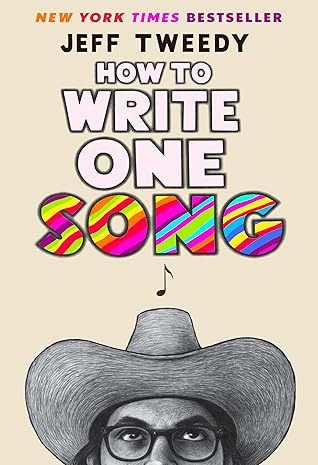More on this book
Community
Kindle Notes & Highlights
To me, the key is to surrender to the nonsense and write down the first words that come to your mind as you listen back to what you’ve recorded. It can take some repetition, but eventually it stops sounding like gibberish and it starts feeling almost like you’re translating from another language—or even better, like you’re taking dictation. Once that step is out of the way, I sit down with just the words on the page to see if there is any sense at all to be made out of the raw translation. Shockingly, there is almost always more sense being made than anyone would anticipate. I’ve even had some
...more
The main advantage of being able to free yourself enough to basically semi-scat over your songs is the way this emphasizes how you want the melody to sound over the idea that the words you’ve written are perfect. You might then discover that you need to alter the melody or add a syllable to a few vowel sounds here and there.
If you don’t like what you’re singing, and how it feels to sing it, and how it sounds to your ear, you have no reason to expect anyone else will want to sing along with you. Isn’t that the point of all this in a way? Don’t we want more than anything to make something that reflects who we are and how we feel honestly enough that someone else might feel seen or acknowledged, and less alone?
When I feel like I’m stuck, I try to put myself back in touch with the reality of the situation. There are no rules AND I make them!
Starting in the wrong place is a good message, and turns your judgment upside down. If you like delicate, melodic songs, maybe start with a drum machine. If you’re pretty sure your chorus sucks, start with it; make it the beginning of the song and see if you feel differently about it. Can you play the chord progression in the reverse order? It’s amazing how this can work sometimes. I’ve reversed chord progressions without having to alter a melody except slightly. Did you write the song on an acoustic guitar? Play it loud on an electric.
Do you have a favorite part? A favorite lyric? Start there.
When I come across a good line, I almost always put it first.
I’d say a good first line is the most determining factor in whether a song I’ve written sees the light of day.
Songs aren’t generally paced like novels or short stories, even. They’re often more like bumper stickers. If you have a lyric that feels great to sing and grabs your attention, see what happens when you open up with that line.
sometimes we become overly suspicious of things that are easy. Things we’re “good at” can be devalued in unfair ways sometimes. I think it’s natural to strive to be great and equally natural to imagine that greatness requires struggle and even pain. But that belief often forces us to look down on the things that feel effortless.
Don’t undervalue things that come easy. Sometimes they’re the things that would be the hardest for someone else to do and often they are the things that would be almost impossible to do when you try too hard.
Keep punching. Sit in the discomfort you’re feeling and will your song into being.
Giving up becomes a habit. And the delayed gratification that comes from a song finished with some hardship is going to teach you more about writing songs than this entire book will ever be able to impart. Through your own grit and effort, you will learn where you’re likely to trap yourself in dead ends, and you’ll be one more song wiser to the idea that songs all happen the same way.
all future procrastination will be a tiny bit less persuasive in the wake of one hard-won song, right?


